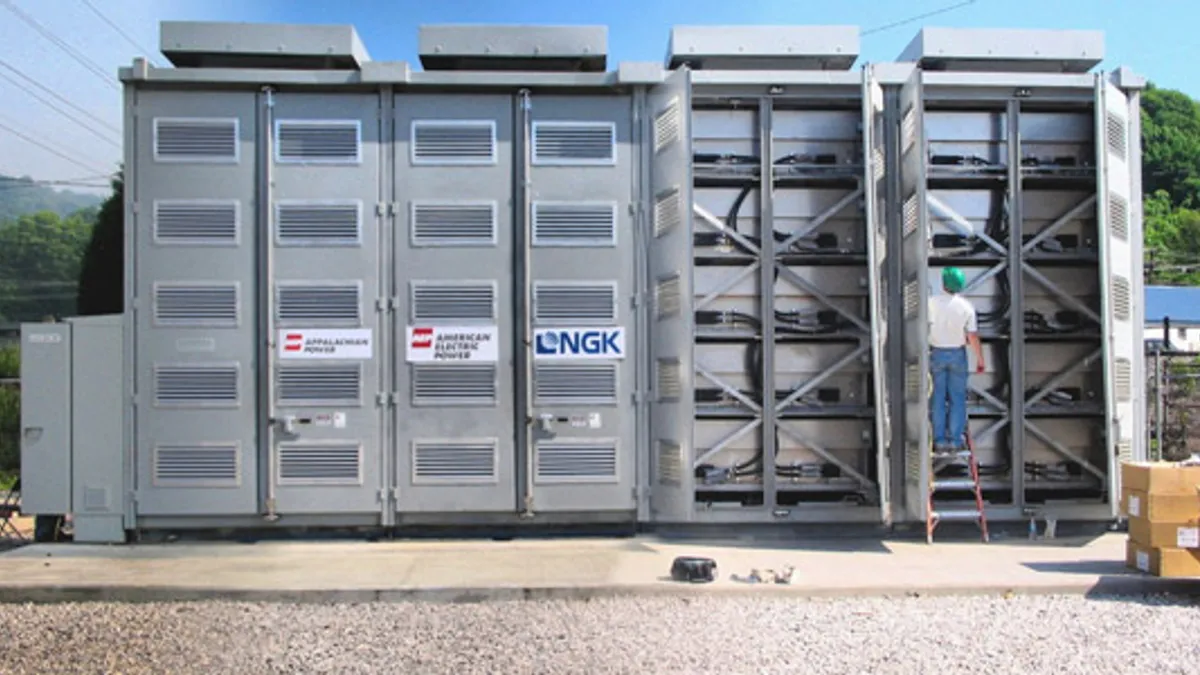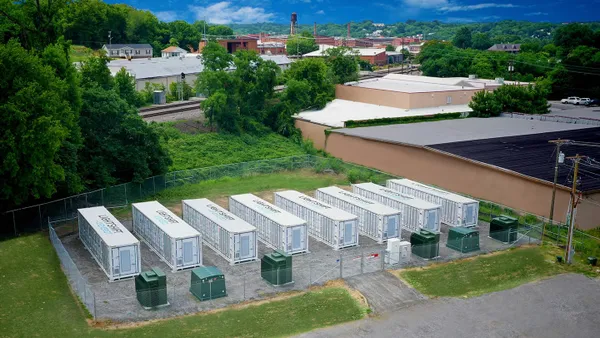Dive Brief:
-
Indianapolis Power & Light (IPL) has filed a fast track complaint asking the Federal Energy Regulatory Commission (FERC) to find that the Midcontinent ISO’s rules for energy storage are deficient and should be revised.
-
The focus of the complaint is IPL’s its 20 MW Harding Street battery storage plant that entered service in May. The facility provides MISO with a variety of ancillary services, but IPL says the ISO does not have appropriate tariffs or business practices so IPL cannot dispatch the device without harming the batteries.
-
MISO's current tariffs were designed for flywheels, IPL argues, and should be revised to include all technologies, with a new category for lithium ion batteries to ensure they are "not degraded because of outdated operating parameters."
Dive Insight:
MISO has been reforming its market rules to spur development of energy storage.
There has been some success, at least in terms of getting IPL’s Harding Street project up and running. But while the battery is operational, IPL says MISO’s tariffs and business practices hamper its operation.
IPL is seeking fast track treatment of its request because it says MISO has been engaged in “ongoing, indeterminate stakeholder process on battery energy storage issues,” and the utility asked FERC to place “tight time limits on any required MISO compliance filings.”
Harding Street currently provide frequency control services, automatic grid-scale service, including primary frequency response, and contributes to MISO’s compliance with North American Electric Reliability Corp. standards, but IPL says there are no provisions in the MISO tariff to compensate IPL for “the essential reliability service” that Harding Street provides.
IPL has asked FERC to find that MISO’ tariff is unjust and unreasonable and unduly discriminatory with respect to the compensation of primary frequency response (PFR) and that PFR should be paid under a separate tariff.
IPL also argues that MISO’s tariffs for ancillary services, energy, ramp, and capacity were designed for the operating characteristics of flywheels, which excludes other applicable technologies such as lithium-ion batteries, and that FERC should have MISO lift those restrictions.
"MISO Tariff SER resource type was designed solely for the operating characteristics of flywheels and limits them to providing Regulating Service," the utility said. "The Commission should direct that the Tariff be reformed so that Resources technically capable of providing various products under the Tariff be permitted to provide such products, regardless of resource label or technology."
Additionally, IPL argued MISO should create a new category for lithium ion battery storage that "respects the operating characteristics of this technology and permits the grid to benefit from its unique capabilities."
The utility suggested that FERC make MISO reform its tariff for regulation service to make it closer to the tariffs used by the PJM Interconnection. PJM’s REg D market has been so successful that the ISO has called a moratorium on new Reg D resources.













